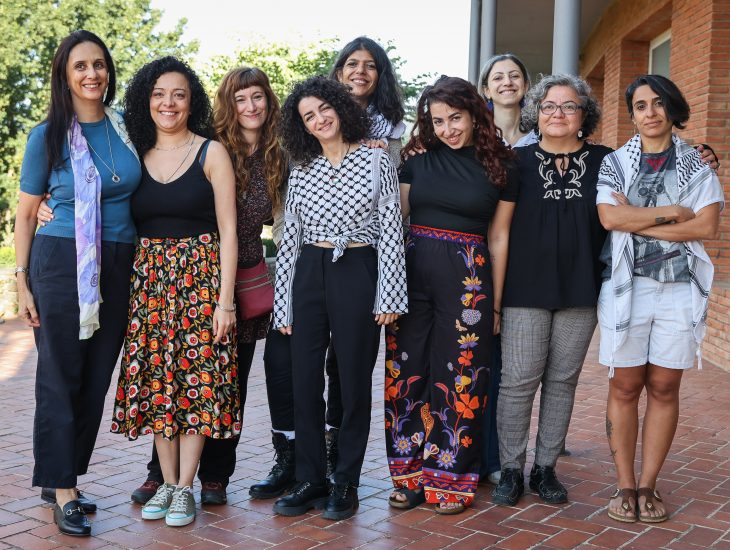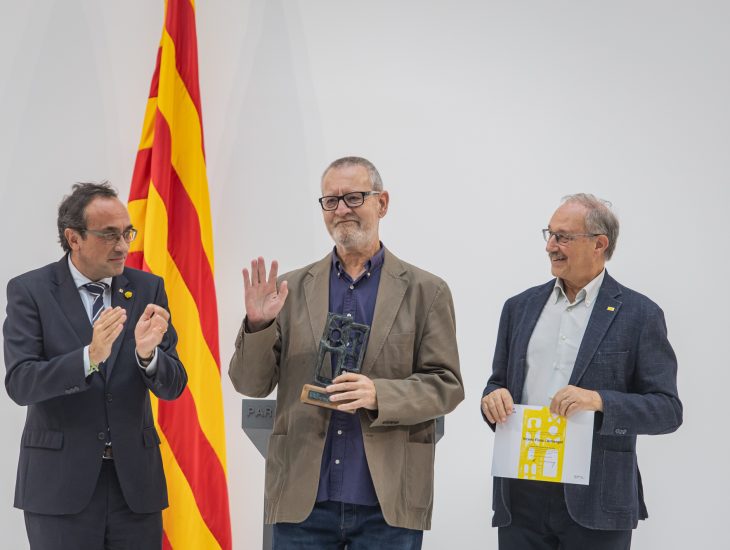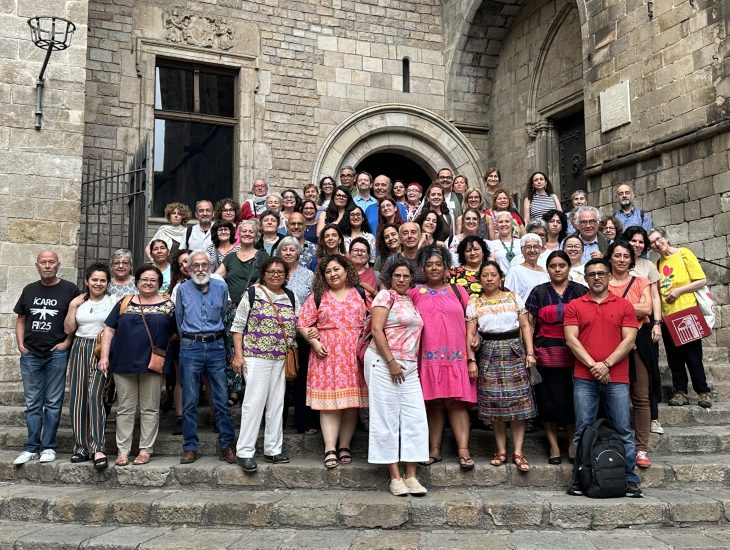ICIP, in collaboration with Clack Video Productions, has organized the second dialogue in the series The Basque Country: Five Years Without ETA Violence. The event will take place at the Association of Journalists of Catalonia on Tuesday 15 November. Entitled Reconciliation, this second dialogue features journalist and writer Sabino Ormazabal, and the Bishop Emeritus of San Sebastián, Juan María Uriarte.
Chaired by the lawyer and ICIP Governing Board member Magda Oranich, the dialogue addressed the state of reconciliation between the opposing parties in the Basque Country in a situation without violence. The two speakers, albeit with different views on the theoretical concept of reconciliation, noted progress in Basque society but also the need to continue working, especially in schools and with young people. “There are people who do not know who Miguel Ángel Blanco was [PP councilor kidnapped and assassinated by ETA in 1997] and here there is a lot of work to do for future generations,” stated Sabino Ormazabal. In this respect, Bishop Juan María Uriarte also noted that there is a lot of “indifference” among young people regarding the ongoing peace process in the Basque Country.
In the dialogue, focusing especially on reconciliation at a social level, rather than at a personal level, it was pointed out that the reconciliation process is not closed, that it will be a slow process and that there is no going back: “The Abertzale Left is interested in affirming that the Basque Country is reconciled. ETA and the Abertzale Left have many accounts to settle, and to heal and pacify the country these accounts cannot be ignored,” said Uriarte. And he added: “In the Basque Country people want to forgive, but there are groups of people that do not want to or cannot do so.” Uriarte also pointed out that memory is an integral element of genuine reconciliation: “To forgive is not to forget, but to remember differently, without resentment.” Ormazabal, for his part, related reconciliation with “positive peace” and a commitment to deal with conflicts without violence. A point that Bishop Uriarte clarifies, however: “Peaceful coexistence as nonviolent coexistence, without arms, does not satisfy me; it is not true reconciliation. Reconciliation repairs the past and reveals the truth.”
During the session, the speakers also brought up the lack of political will to modify prison policy or the law of victims, and to address outstanding issues such as historical memory.
The next dialogue in this series, The Construction of Historical Memory, will take place on Tuesday 22 November at 6:30 pm, with the journalists Martxelo Otamendi, of the newspaper Berria, and Gorka Landaburu, of Cambio16.
28.01.2016




